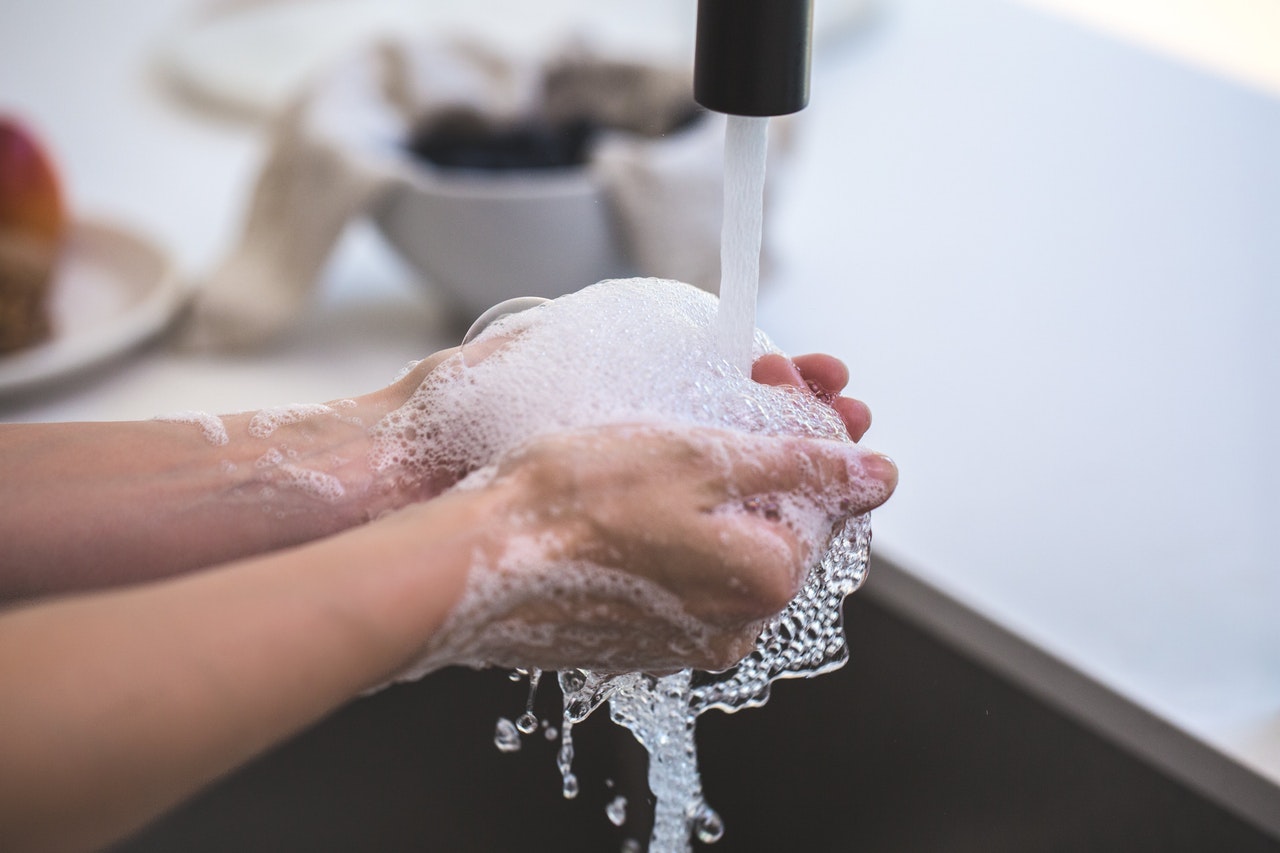Ashford Clinic Blog
Hand Washing 101
 Everyone wants to stay healthy, especially at times when there is a lot of illness going around. So, how can you protect yourself when it seems like everyone around you is getting sick? While there is no way to fully guarantee you will avoid any and all sickness, one of the most effective ways to prevent illness for you and your family is actually very simple - wash your hands. Most people grew up being told to wash hands before meals and after using the restroom, and you should still ABSOLUTELY wash your hands at those times, but there is more to keeping your hands clean and your body healthy than you might think. We're not talking about making sweeping changes to your lifestyle that require lots of effort, a little more effort in being mindful and intentional about how and when you wash your hands can go a long way in keeping you, your family, and even your community healthy.
Everyone wants to stay healthy, especially at times when there is a lot of illness going around. So, how can you protect yourself when it seems like everyone around you is getting sick? While there is no way to fully guarantee you will avoid any and all sickness, one of the most effective ways to prevent illness for you and your family is actually very simple - wash your hands. Most people grew up being told to wash hands before meals and after using the restroom, and you should still ABSOLUTELY wash your hands at those times, but there is more to keeping your hands clean and your body healthy than you might think. We're not talking about making sweeping changes to your lifestyle that require lots of effort, a little more effort in being mindful and intentional about how and when you wash your hands can go a long way in keeping you, your family, and even your community healthy.
How To Wash Your Hands
Putting your hands under running water for a few seconds won't do the job. Cleaning your hands properly can help prevent the spread of germs and viruses from person to person throughout an entire community, so there are actually serious real-life implications for you and your family washing your hands properly. Here are the CDC's instructions for washing your hands the right way:
- Wet your hands with clean, running water (warm or cold), turn off the tap, and apply soap.
- Lather your hands by rubbing them together with the soap. Lather the backs of your hands, between your fingers, and under your nails.
- Scrub your hands for at least 20 seconds. Need a timer? Hum the “Happy Birthday” song from beginning to end twice.
- Rinse your hands well under clean, running water.
- Dry your hands using a clean towel or air dry them.
When To Wash Your Hands
No one is suggesting that you wash your hands every couple of minutes regardless of what you've been doing, but here are the CDC's recommendations for when you should clean your hands...
- Before, during, and after preparing food
- Before eating food
- Before and after caring for someone at home who is sick with vomiting or diarrhea
- Before and after treating a cut or wound
- After using the toilet
- After changing diapers or cleaning up a child who has used the toilet
- After blowing your nose, coughing, or sneezing
- After touching an animal, animal feed, or animal waste
- After handling pet food or pet treats
- After touching garbage
When To Use Hand Sanitizer
While hand sanitizer is not as effective as using soap and water, it can quickly reduce the number of germs on your hands in many situations. In other words, use it if you don't have access to soap and water. The best sanitizers are alcohol-based and contain at least 60% alcohol. However, hand sanitizers won't get rid of everything. Some things to consider when using hand sanitizer...
- Sanitizers do not get rid of all types of germs.
- Hand sanitizers may not be as effective when hands are visibly dirty or greasy.
- Hand sanitizers might not remove harmful chemicals from hands like pesticides and heavy metals.
Some guidelines for using sanitizer...
- Apply the gel product to the palm of one hand (read the label to learn the correct amount).
- Rub your hands together.
- Rub the gel over all the surfaces of your hands and fingers until your hands are dry. This should take around 20 seconds.
- Do Not Swallow hand sanitizer and supervise the use of sanitizer by children. It's best to store it out of a child's reach.
Following these guidelines does not take minutes our hours out of your day, you won't be less productive or miss out on much because you took a few more seconds to thoroughly wash your hands. In fact, one could argue that the time invested in these measures is worthwhile if it means not having to miss work or social events because you are sick or not feeling well. So, wash your hands wisely - your body, family, friends, co-workers, and community will be healthier and better off as a result.


